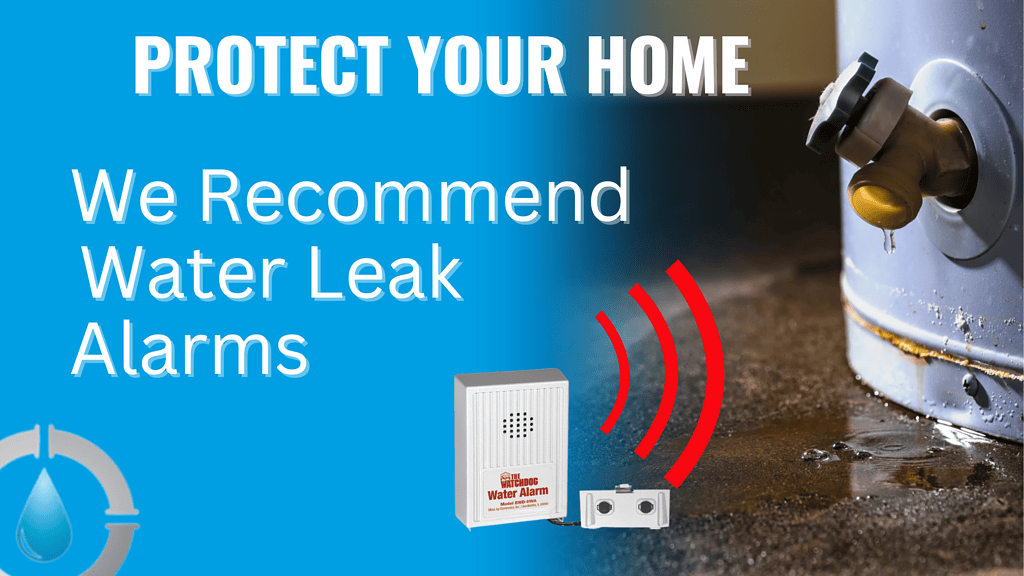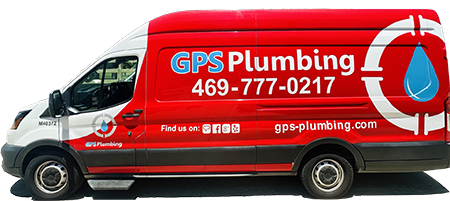
Water Leak Alarms
Water damage is one of the most costly and disruptive issues homeowners face, often caused by burst pipes, leaking water heaters, or overflowing appliances. To prevent severe damage and costly repairs, installing water leak alarms is one of the simplest and most effective solutions. These versatile devices can be placed near water heaters or anywhere else leaks might occur, providing early detection and peace of mind. Here’s everything you need to know about water leak alarms and why they’re a must-have for every homeowner.
What Are Water Leak Alarms?
Water leak alarms, also known as leak detectors, are small devices designed to detect the presence of water and alert you to potential leaks. When water comes into contact with the sensors on the alarm, it triggers a loud alert, similar to a smoke detector, warning you of a leak. This early warning allows you to address the issue before it becomes a major problem, saving you from costly repairs and potential property damage. Learn more about our leak detection services.
Why Install Water Leak Alarms?
- Early Detection of Leaks: Water alarms provide early detection of leaks, allowing you to take immediate action. This can prevent minor leaks from turning into major disasters, such as flooding or extensive water damage.
- Protection for Water Heaters: Water heaters are a common source of leaks, especially as they age. Installing a water alarm near your water heater can alert you to leaks before they cause significant damage to your home.
- Versatility: While water alarms are ideal for placement near water heaters, they can be used in any area of your home where leaks might occur, including under sinks, near washing machines, or by your dishwasher.
- Peace of Mind: Knowing that you have water alarms in place provides peace of mind, especially if you live in an area prone to flooding or have had water damage in the past.
For more insights on how water sensors can help prevent damage, check out this Travelers guide.
Where to Place Water Leak Alarms
- Near the Water Heater: The most common place for water alarms is near your water heater. This area is prone to leaks, especially as the heater ages or if it’s located in an unconditioned space like a garage or attic.
- Under Sinks: Leaks under sinks can go unnoticed for long periods, leading to mold growth and cabinet damage. A water alarm here can alert you to issues before they escalate.
- Behind Appliances: Place water alarms behind appliances that use water, such as washing machines, dishwashers, and refrigerators with water lines. These areas are often out of sight, making it harder to detect leaks early.
- Basements and Crawl Spaces: These areas are prone to moisture and leaks, especially during heavy rain. A water alarm can alert you to any water intrusion, helping you protect your home’s foundation and structure.
Don’t Forget to Change the Batteries
Just like smoke detectors, water alarms are only effective if they are in good working order. Most water alarms run on batteries, so it’s essential to check them regularly. A good rule of thumb is to change the batteries at least once a year, or whenever you change your smoke detector batteries. Some water alarms have low battery indicators, so be sure to listen for those alerts and replace the batteries promptly.
For more tips on home maintenance, visit the Bob Vila’s guide to water alarms.
Types of Water Leak Alarms
- Standalone Water Alarms: These are the most common and affordable types of water alarms. They are small, battery-operated devices that you can place anywhere in your home.
- Smart Water Alarms: These connect to your home’s Wi-Fi network and send alerts to your smartphone if they detect a leak. This is particularly useful if you’re away from home and want to stay informed about any potential issues.
- Water Shutoff Systems: More advanced systems combine leak detection with an automatic water shutoff valve. If a leak is detected, the system shuts off your water supply to prevent further damage. This type of system is ideal for homeowners who want the ultimate protection against water damage.
Installation Tips
- Location is Key: Place your water alarms in areas where leaks are most likely to occur. Make sure the sensors are in contact with the floor or surface where water would first appear.
- Test Regularly: Test your water alarms periodically to ensure they are functioning correctly. This is as simple as touching the sensors with a damp cloth to trigger the alarm.
- Maintain Power: Keep spare batteries on hand and set a reminder to change them annually. Consider using high-quality batteries to ensure long-lasting performance.
External Link: For a step-by-step guide on installing water alarms, check out this DIY installation video.
Why GPS Plumbing Recommends Water Leak Alarms
At GPS Plumbing, we’ve seen firsthand the damage that water leaks can cause. That’s why we strongly recommend installing water alarms in your home. Whether you’re protecting your water heater, kitchen, or basement, these devices offer an affordable and effective solution to prevent water damage. If you’re unsure where to place your water alarms or need assistance with installation, our team is here to help.
Pro Tip: Combine water alarms with regular plumbing maintenance for the best protection against leaks and water damage.
Protect Your Home Today
Don’t wait until it’s too late. Protect your home from water damage by installing water alarms in key areas. For expert advice on water alarms and all your plumbing needs, contact GPS Plumbing today. We’re here to help you keep your home safe and secure.

